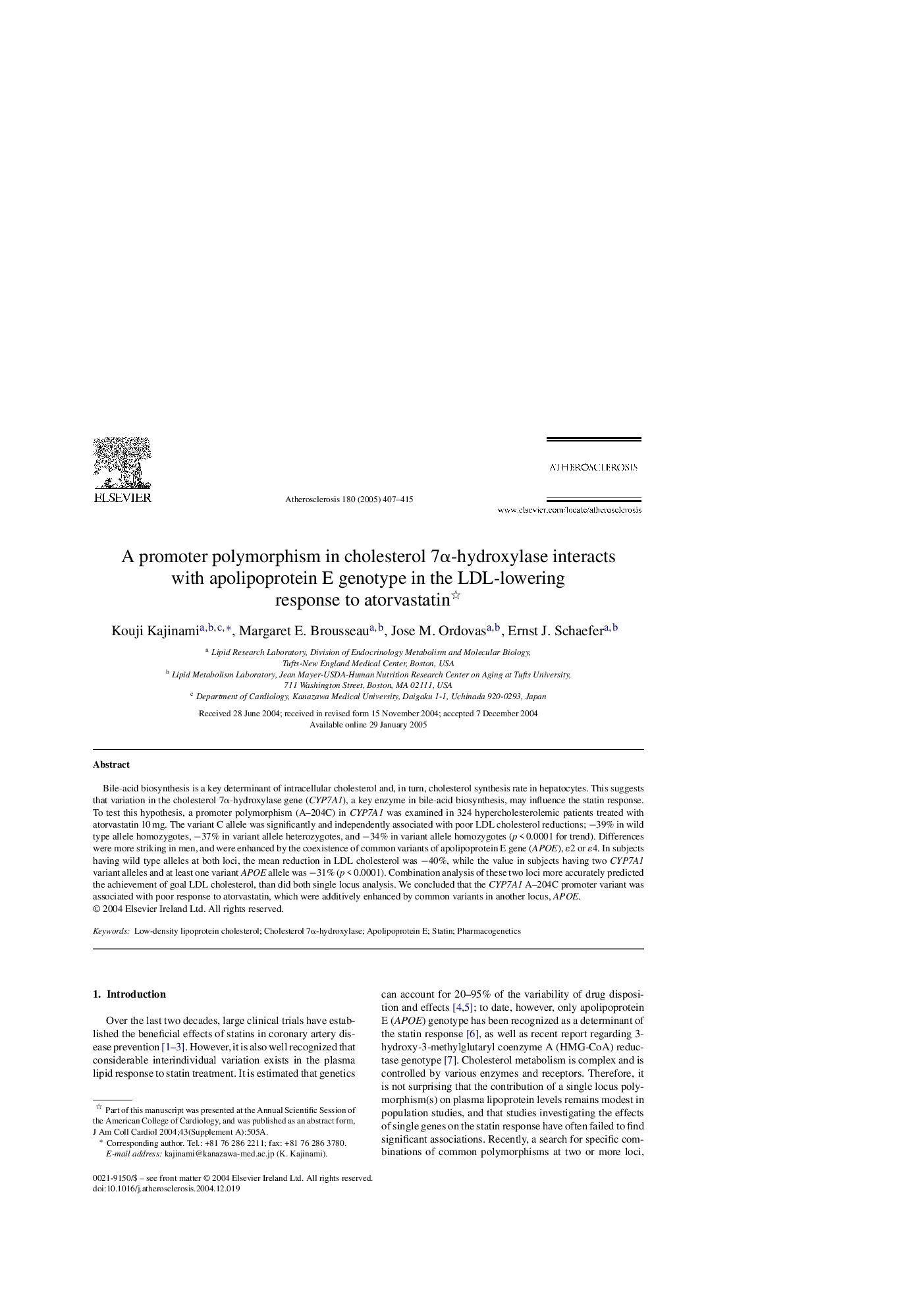| Article ID | Journal | Published Year | Pages | File Type |
|---|---|---|---|---|
| 9157730 | Atherosclerosis | 2005 | 9 Pages |
Abstract
Bile-acid biosynthesis is a key determinant of intracellular cholesterol and, in turn, cholesterol synthesis rate in hepatocytes. This suggests that variation in the cholesterol 7α-hydroxylase gene (CYP7A1), a key enzyme in bile-acid biosynthesis, may influence the statin response. To test this hypothesis, a promoter polymorphism (A-204C) in CYP7A1 was examined in 324 hypercholesterolemic patients treated with atorvastatin 10 mg. The variant C allele was significantly and independently associated with poor LDL cholesterol reductions; â39% in wild type allele homozygotes, â37% in variant allele heterozygotes, and â34% in variant allele homozygotes (p < 0.0001 for trend). Differences were more striking in men, and were enhanced by the coexistence of common variants of apolipoprotein E gene (APOE), É2 or É4. In subjects having wild type alleles at both loci, the mean reduction in LDL cholesterol was â40%, while the value in subjects having two CYP7A1 variant alleles and at least one variant APOE allele was â31% (p < 0.0001). Combination analysis of these two loci more accurately predicted the achievement of goal LDL cholesterol, than did both single locus analysis. We concluded that the CYP7A1 A-204C promoter variant was associated with poor response to atorvastatin, which were additively enhanced by common variants in another locus, APOE.
Keywords
Related Topics
Health Sciences
Medicine and Dentistry
Cardiology and Cardiovascular Medicine
Authors
Kouji Kajinami, Margaret E. Brousseau, Jose M. Ordovas, Ernst J. Schaefer,
